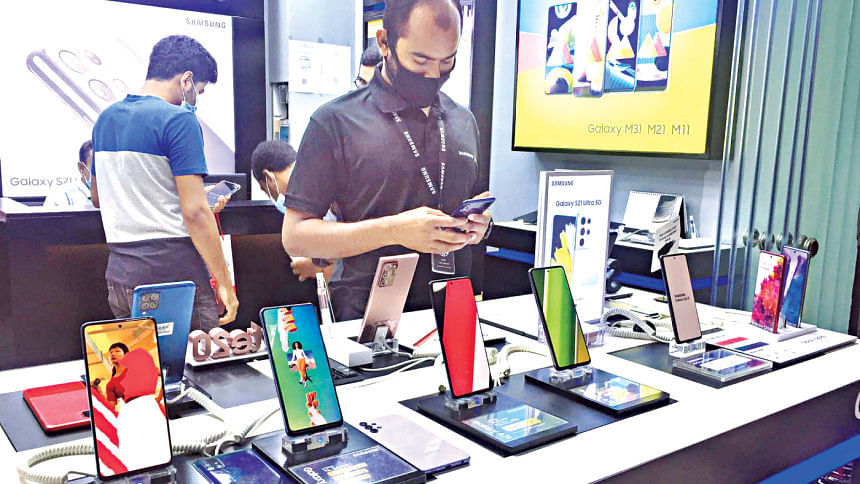Handset production falls 30% in June

Local handset production dropped by over 30 percent in June compared to the previous month, with feature phones taking the biggest hit, according to official figures.
Data from the Bangladesh Telecommunication Regulatory Commission (BTRC) shows that 16.31 lakh handsets were made in June, down from 23.45 lakh in May.
Manufacturers say production levels often swing from month to month, largely because local assembly depends entirely on imported components. As a result, shipment delays can disrupt the supply chain and affect output.
In June, feature phone production saw the steepest fall, dropping 36.88 percent to 8.69 lakh units. Yet, these devices still made up 53.32 percent of all handsets produced during the month.
Smartphone output also fell in June, shrinking 25.97 percent to 7.01 lakh units, making up the remaining 46.68 percent.
Over the past few years, local phone makers have been complaining about the growing dominance of the grey market, which they say has been chipping away at their sales and undercutting production.
According to the Mobile Phone Industry Owners' Association of Bangladesh (MPIOAB), nearly 40 percent of the smartphone market is now dominated by grey imports.
As such illegal products flood the industry, domestic firms, already grappling with high input costs, see their margins undercut and sales eroded.
"The handset industry is under growing pressure as handsets are brought into the country through illegal channels. Besides, the depreciation of the Bangladeshi taka against the US dollar hurts," Rizwanul Haque, vice-president of the association, said.
To make matters worse, the association said the government recently hiked taxes on locally assembled handsets.
Bangladesh now imposes an effective tax rate of around 35 percent, the highest in the region, the association noted, adding that Pakistan, by comparison, levies just 20 percent.
Besides, over the past three years, the sector had been grappling with a shortage of letters of credit due to the dollar crisis and rising exchange rates.
Simultaneously, sales have fallen, and the expanding grey market continues to erode the competitiveness of domestic manufacturers.
The downturn is more than a blip. In 2023, total production fell year-on-year for the first time since Bangladesh launched local manufacturing in 2017.
Industry insiders also point to regulatory lapses as a contributing factor.
The National Equipment Identity Register (NEIR), a system launched by the BTRC to prevent the illegal use and import of mobile phones, remains only partially implemented. As a result, efforts to curb the grey market have been largely ineffective.
The BTRC signed a Tk 29 crore agreement with the Synesis-Radisson-Computer World consortium on November 25, 2020, to set up and operate the NEIR system. A trial run began in July 2021, but the initiative has yet to be fully enforced.
The regulator has floated a new tender to revive the NEIR system with the full feature set, including the ability to block illegal phones.

 For all latest news, follow The Daily Star's Google News channel.
For all latest news, follow The Daily Star's Google News channel. 



Comments